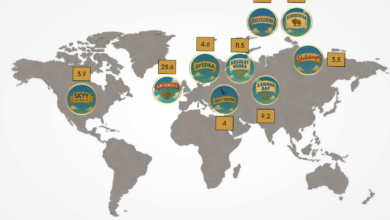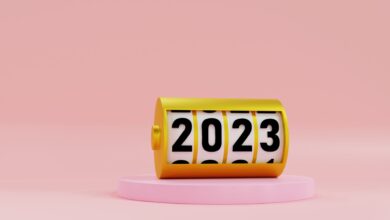Strategies for Paying off Loans Early
Consumer debt reached $4.1 trillion in the second quarter of 2019. Credit card debt alone accounted for more than one-quarter of this amount.
Nowadays, taking out a loan or applying for a credit card is easier than ever before. A growing number of private lenders are providing funds to students, startups, and other consumers who may or may not be able to afford to pay off debt.
Chances are, you took a loan at some point. Perhaps you wanted to buy a new house or start a small business. If you’re afraid of debt, then paying off loans early should top your priority list.
From asking for lower interest rates to tackling smaller debts first, there are a couple of things you can do to pay off your loans quickly. Moreover, if you are already fighting with bad credit, repairing your credit and getting out of debt doesn’t always have to take ages.
The key is to budget your expenses, seek ways to save money, and practice financial discipline.
Not sure where to start? Here’s how to pay off a personal loan faster and avoid debt!
Make One Extra Payment
Start by making one extra payment each year. For example, if your monthly rate is $1,000, pay an extra $1,000 during the year. It’s that simple!
Have a hard time coming up with the money for that extra payment? Then spread it over the entire year. Put some money aside each month or use what you get from a tax refund.
Note, though, that some lenders may apply prepayment penalties. Ask your bank about it beforehand to make sure you won’t be charged extra.
Sign Up for Autopay
Many lenders, especially those offering student lenders, provide discounts to consumers who allow them to automatically deduct payments from their bank accounts. Although the savings are small, they add up in the long-term.
Reach out to your lender and ask about this option. The money you’ll save can help you pay off your loans earlier.
Pay Off Your Highest Interest Loans First
Have you ever heard of the avalanche method? It involves making minimum payments on each source of debt and then paying off the highest interest loans. Once you’re done, you can focus on the loan with the next highest interest rate and continue until you’re debt-free.
To put it simply, pay off your debts based on their interest rates. This way, you’ll save money and get out of debt faster.
The downside is that you may lose your motivation, especially when dealing with high-balance debts. Again, it’s important to practice financial discipline.
Consolidate or Refinance Your Loans
If you choose to consolidate your loans, you’ll only have to make a single payment each month instead of several payments. With this option, you’ll take out a new to pay off smaller loans, so make sure you’re aware of the interest rates.
Another strategy is to refinance your loan to get lower interest rates and pay less each month. In this case, the new loan should have better terms than your current loan.
A potential drawback is that refinancing can be expensive as it involves extra fees. Contact several lenders, compare their offers, and make an informed decision.
Save Money by Paying Off Loans Early
These are just a few of the strategies you can use for paying off loans early. If you do things right, you’ll save money and improve your credit score. This means you’ll gain financial freedom and become more appealing as a borrower.
One of the biggest advantages of paying off debt faster is that you’ll have peace of mind. Once you’re debt-free, you can finally buy the things you want, travel more, and make savings for rainy days.




